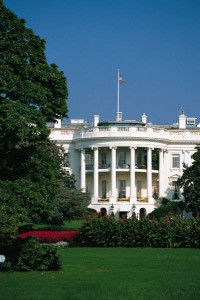 If the U.S. Government were a business:
If the U.S. Government were a business:
We would be focusing on maximizing shareholder wealth. All the voters are essentially shareholders. Think about it, we pay taxes, almost like purchasing shares, expecting the government to make decisions and fund programs that contribute to the economy. We elect officials that manage our organization, and we hope that they make wise decisions since we have invested so much in their expertise. And yet it seems that maximizing our wealth, increasing the return on the tax dollars we have paid, doesn’t seem to be a big focus. Nope, officials are all about election campaigns and drawing lines in the sand.
- For example, when it comes to tax reform, there is this focus on redistributing the wealth by having the top income earners paying more taxes. Only 22,000 households earn more than $1million, and if we increase their taxes (and they pay $845,000), according to calculations from the Tax Policy Center (as reported by wsj.com), only $19billion would be raised. And we’re in a deficit that has “trillion” behind it. The math doesn’t add up. And those who would pay then have less money to consume. Reducing consuming power means they aren’t buying the products companies are making, which reduces the need for that company to produce, and then requires less employees to do the job. What if everyone paid $100 in taxes? Either $100 more than you give now, or at least $100 if you are part of the 40% not filing income taxes. According to 2009 data, there are over 232,000,000 people over the age of 18. So that’s $23billion if everyone added $100. I know it’s not possible to get $100 out of absolutely everyone, but if we want to share wealth, don’t we then need to share responsibility too?
We would be worried about the competition. In the free market, it makes sense that if you aren’t performing, a competitor can come in and do it better than you. Who benefits when someone better comes along? Consumers do, they can get better quality and maybe even better prices. I would even say other companies because there’s a push for innovation. Staying on top of your game makes you who you are. When we have a system, however, that feels as if it is immune to competition, then what happens? They forget about what they needed to do in the first place.
- Imagine if China could come in and acquire our government. They may not be the best organization or have competitive advantage over Brazil or India, but they could see the U.S. is broken. If all China wanted was some economies of scale and global expansion to help their own market position, acquiring the U.S. could be the best business decision they ever made. If anything, they’re already integral to the U.S. economy due to outsourcing and global exchange. Why not vertically integrate?
Officials would be expected to perform instead of blame things on the decision makers that came ahead of them. While there are instances of officials being ousted due to bad behavior, like Anthony Wiener, if we aren’t happy with performance, shareholders need to wait until the next election season rolls around to get someone new. And then, elections have made it more about picking sides instead of compromise. Usually the best solutions have a combination of approaches, not just one or the other. But we’re forced to decide based on tagline politics, assuming that the American people are too busy to understand the complexity of the issues presented to them. When there are no results, just stalemates, we blame the fact that someone ahead of us made the bad decision. We inherited it. I wonder what would happen if the government took a look at Total Quality Management or Business Process Re-engineering. Hmm…
- What if we could oust officials in the same manner as CEOs and executives are removed from their positions? Not to say that a phone call such as the one Carol Bartz received is the most eloquent way of doing things, but how would officials behave knowing there is the threat of immediate removal vs. a four year tenure? Would you be spending time trying to gain momentum on the election campaign trail? Or would you be getting results? Job seekers know that demonstrating quantitative results helps put your resume on top, regardless of your position on things. When did position matter more?
If the U.S. Government were a business, we probably would have shut our doors years ago.
Photo credit.





I love your article!
Thanks!
Adam
Glad you liked it! 🙂